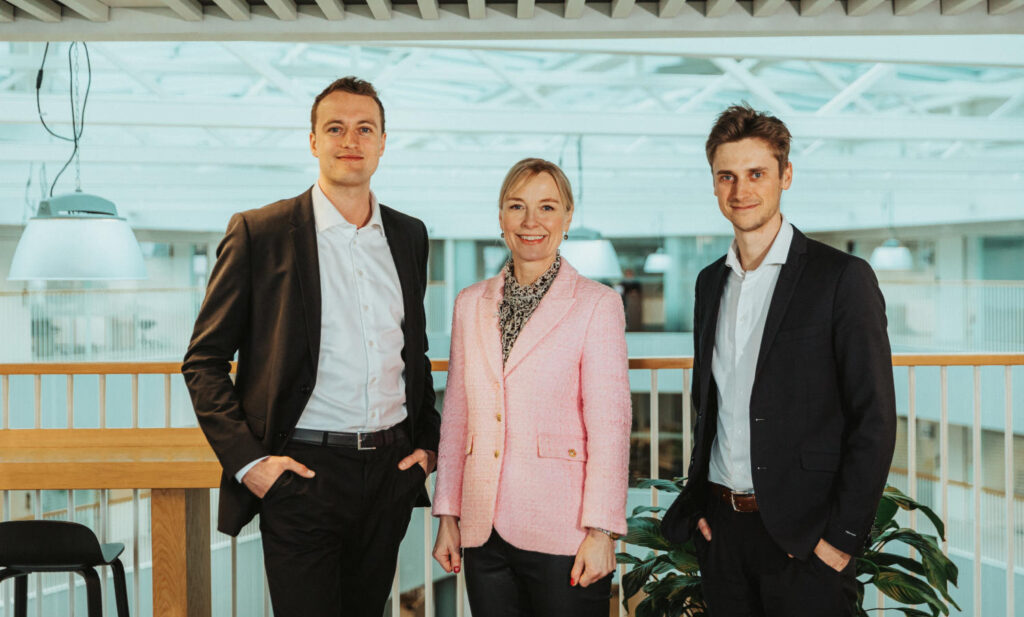80 hours a week. At least. No family parties, that goes without saying. And then you must just kick ass and hustle your way to hypergrowth. You may suffer from stress or a stomach ulcer along the way, but then, once the startup has become a success, you can order your well-deserved Porsche.
The narrative of the all-sacrificing entrepreneur is alive and kicking. And it can seem a far cry from the safe environment at university that researchers and students are asked to leave to turn their research into a business.
“At the university there is quite a lot of work pressure, but planning your PhD is easier than planning a startup. In a startup, some periods are simply chaotic and you never know what the day will bring,” says Cecilie Willer, business psychology advisor, coach and founder of the company Today.io.
But she also believes that another narrative is needed about doing ones best as an entrepreneur. A narrative that is not so much about competitive hustle and bloody capitalism.
“Entrepreneurship is the extreme sport of the business world. Therefore, you need to take care of yourself and remember that you are both an entrepreneur and a human being. Some people seem to think that if you have a very strong mental health, you must not be performing intensively enough. And to me, this is a very strange notion since man is not a machine and we have long known that we perform better if we’re happy and healthy. Only, this seems to have been more or less forgotten in entrepreneurial environments,” she says.
You are your work
Among other things, Cecilie Willer coaches founders of startups in PreSeed Ventures, BioInnovation Institute and Health Tech Hub Copenhagen. She has, therefore, seen many examples of what it takes to make the transition from researcher to founder. And, in her opinion, there are a lot of similarities between the two identities:
“Startup founders tie their identity to their startup and their work, and so do musicians and researchers. They get totally wrapped up in their work, which is, of course, often essential to creating something amazing. But, unless they find a way to unplug from work, they risk getting too engulfed – and then it will be harder to cope when pressure and stress set in and they lose perspective,” says Willer.
Both entrepreneurs and researchers are most likely overachievers who set high goals and reach them. They don’t need to learn to work hard. They need to learn to relax and strike a balance between being engulfed and detaching themselves – an exercise already known to many researchers, Willer states.
Learn to ask stupid questions
The greatest barrier, she believes, lies in the transition from identifying with the role of researcher to embracing a more commercial identity.
“Some researchers feel they’re saying goodbye to a very safe life, taking a leap into something that is very uncertain. They feel they’re saying goodbye to an identity, but really it’s more about adding a new identity to the old one,” she says, and continues:
“One of the main issues I see is that often researchers are used to being the specialists who have all the answers. When they become founders, they’re suddenly the ones asking stupid questions – they don’t have the answers anymore when it comes to starting and running a business,” she says.
However, she also believes that it is wrong to think that it’s necessary to go from being a researcher to being a superseller in order to turn knowledge into a commercial enterprise.
“In the classic entrepreneurial journey, a group of young men with an idea start a business and follow it all the way. For a researcher, the role of entrepreneur is more diverse. Maybe only 50 per cent of the time is spent on entrepreneurial activities, as Head of Science, for instance – so there’s still time to focus on research,” she says.
This article is a part of the magazine ‘From University to UnicornUnicorn er et udtryk, der bruges til at beskrive en startup-virksomhed, der har nået en værdiansættelse på 1 milliard dollars eller mere. More 2021’. You can read the full magazine here.








 Kære læser, du er meget velkommen til at dele vores artikler på sociale medier, linke eller referere til artikler eller content på TechSavvy.media. Men ønsker du helt eller delvist at kopiere indhold fra sitet må det kun ske efter aftale med vores redaktion på editorial@techsavvy.media.
Kære læser, du er meget velkommen til at dele vores artikler på sociale medier, linke eller referere til artikler eller content på TechSavvy.media. Men ønsker du helt eller delvist at kopiere indhold fra sitet må det kun ske efter aftale med vores redaktion på editorial@techsavvy.media.
 Kære læser, du er meget velkommen til at dele vores artikler på sociale medier, linke eller referere til artikler eller content på TechSavvy.media. Men ønsker du helt eller delvist at kopiere indhold fra sitet må det kun ske efter aftale med vores redaktion på editorial@techsavvy.media.
Kære læser, du er meget velkommen til at dele vores artikler på sociale medier, linke eller referere til artikler eller content på TechSavvy.media. Men ønsker du helt eller delvist at kopiere indhold fra sitet må det kun ske efter aftale med vores redaktion på editorial@techsavvy.media.